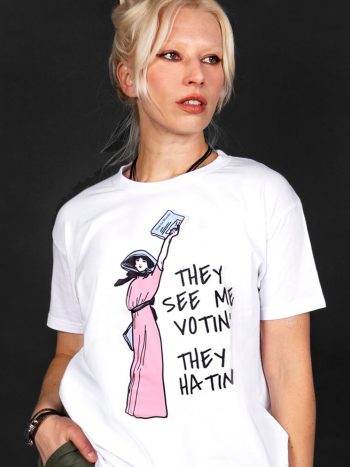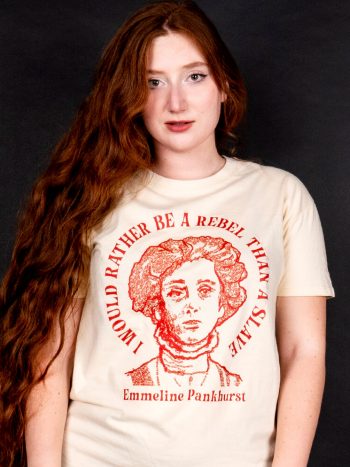The suffragette movement of the late 19th and early 20th centuries marked a watershed moment in the fight for women’s rights and political representation.
Led by formidable leaders, this movement brought about significant social change and challenged deeply ingrained gender norms. In this article, we will explore the suffragette movement, highlighting three prominent leaders and tracing a timeline of key events that ultimately led to women securing the right to vote.
The Suffragette Movement: A Quest for Equality

The suffragette movement emerged in the late 19th century as women across the world sought to challenge the systemic denial of their political rights.
These courageous activists fought tirelessly for the enfranchisement of women, pushing against societal norms and enduring significant opposition.
The movement gained momentum through the dedication and strategic efforts of its influential leaders.
Emmeline Pankhurst (1858-1928)
Emmeline Pankhurst, a central figure in the suffragette movement, founded the Women’s Social and Political Union (WSPU) in 1903.
Pankhurst’s unwavering commitment to the cause and her impassioned speeches inspired countless women to join the fight for suffrage. She employed bold tactics and civil disobedience, leading hunger strikes and organising large-scale protests to bring attention to the cause.

Pankhurst’s leadership ignited a sense of urgency and resistance that would shape the movement’s trajectory.
Emmeline Pankhurst’s unwavering determination and leadership played a crucial role in mobilising the suffragette movement in the early 20th century. Alongside her daughters Christabel and Sylvia, she transformed the fight for women’s suffrage into a mass movement, drawing attention to the gender inequalities prevalent in British society. Pankhurst’s vision and unwavering commitment laid the foundation for significant progress towards gender equality.
“I would rather be a rebel than a slave.”
This iconic quote encapsulates Pankhurst’s defiance and refusal to accept subjugation or oppression. By proclaiming, “I would rather be a rebel than a slave,” she empowers women to reject societal expectations that sought to confine them to roles of subservience. Pankhurst’s words convey her conviction that freedom and equality are worth fighting for, even if it means “slaying the patriarchy” and challenging the established order.
“I incite this meeting to rebellion.”
Pankhurst’s call to rebellion reflects her determination to disrupt the status quo and demand change. By inciting the meeting to rebellion, she urged women to rise up against the suffocating constraints of a patriarchal society. Pankhurst understood the necessity of radical action to draw attention to the suffragettes’ cause, and her words served as a rallying cry for a generation of women who were no longer willing to be silenced.
Susan B. Anthony (1820-1906)

Susan B. Anthony, a prominent American suffragette, dedicated her life to achieving women’s suffrage. As a co-founder of the National Woman Suffrage Association, Anthony played a pivotal role in campaigning for legal and political rights for women.
Her tireless advocacy and relentless pursuit of justice laid the foundation for the eventual ratification of the Nineteenth Amendment to the United States Constitution in 1920, granting American women the right to vote.
“Independence is happiness.”
This quote reflects Anthony’s belief that women’s independence and autonomy were essential for their overall well-being and fulfilment. She emphasised that women should have the freedom to make choices and have control over their own lives.
“Men, their rights, and nothing more; women, their rights, and nothing less.”
This powerful statement captures Anthony’s demand for equal rights for women. She argued that women should be granted the same rights and opportunities as men, without any compromises or limitations.
“Failure is impossible.”
Anthony famously declared, “Failure is impossible,” during her trial for illegally voting in the 1872 presidential election. This quote exemplifies her unwavering determination and belief in the eventual success of the suffrage movement. It has since become an iconic rallying cry for those fighting for gender equality.
These quotes, among others, showcase Susan B. Anthony’s steadfast commitment to women’s rights and her unwavering belief in the pursuit of equality. Her words continue to inspire and resonate with activists and advocates for gender equality to this day.
Millicent Fawcett (1847-1929)

Millicent Fawcett, a leading suffragette in the United Kingdom, focused on peaceful activism and strategic lobbying.
She founded the National Union of Women’s Suffrage Societies (NUWSS) in 1897, emphasising nonviolent protest and parliamentary efforts. Fawcett’s dedication and persistence contributed to the passage of the Representation of the People Act in 1918, which granted voting rights to certain women in the UK.
Here are a couple of notable quotes attributed to Millicent Fawcett:
“Courage calls to courage everywhere.”
This quote encapsulates Fawcett’s belief in the power of collective action and solidarity. She emphasized that bravery and determination in the face of adversity inspire and motivate others to join the fight for equality. Fawcett recognised that every act of courage, no matter how small, has the potential to create a ripple effect of change.
“The cause of women is the cause of humanity.”
Fawcett championed the idea that the fight for women’s rights was not just about women but also about creating a more just and equitable society for all. This quote reflects her belief that achieving gender equality would benefit humanity as a whole, emphasizing the interconnectedness of social justice issues.
While Millicent Fawcett’s quotes may not be as widely known as those of other suffragettes, her words convey her dedication to the cause of women’s suffrage and her belief in the broader implications of achieving gender equality. Her commitment to peaceful activism, strategic efforts, and parliamentary lobbying played a pivotal role in securing voting rights for women in the United Kingdom.
Timeline of Key Events
1866: The first petition calling for women’s suffrage is presented to the British Parliament by suffragist Barbara Bodichon.
1893: New Zealand becomes the first self-governing country to grant women the right to vote in national elections.
1903: Emmeline Pankhurst establishes the Women’s Social and Political Union (WSPU) in the UK, marking a more militant approach to suffrage activism.
1913: Emily Davison, a suffragette, sacrifices her life by stepping in front of King George V’s horse during the Epsom Derby, drawing global attention to the suffragette cause. 1918: The Representation of the People Act is passed in the UK, granting voting rights to women over the age of 30 who met specific property qualifications.
1920: The Nineteenth Amendment to the United States Constitution is ratified, granting American women the right to vote.
1928: The Equal Franchise Act is passed in the UK, giving women voting rights on equal terms with men.

The Suffragettes' Legacy
The legacy of the suffragettes is profound and enduring. Their relentless pursuit of equality shattered the notion that women were second-class citizens, paving the way for future advancements in women’s rights. Their strategic activism demonstrated that collective action and resilience can bring about tangible change, even in the face of immense opposition.
The suffragettes instigated a paradigm shift in public perception, challenging the belief that women were unfit for political participation. Their courage and determination resonated globally, igniting a spark in women from all walks of life. The suffragettes proved that women had a rightful place in the political sphere and that their voices and perspectives were essential for the advancement of society as a whole.

The suffragettes’ achievements reverberated beyond securing the right to vote. Their legacy transcends time and serves as a rallying cry for ongoing struggles for gender equality. Their bold actions and unwavering commitment continue to inspire individuals and movements fighting against various forms of discrimination and oppression.
The suffragettes’ legacy also serves as a reminder that change is possible, even in the face of seemingly insurmountable barriers. Their journey reminds us that progress requires persistence, resilience, and a collective commitment to challenging unjust systems. The suffragettes’ fight for political equality set a precedent for future movements advocating for women’s rights, civil rights, and social justice.
Today, the suffragettes’ legacy is reflected in the increased representation of women in politics and leadership roles, the ongoing efforts to address gender disparities, and the continued fight against gender-based discrimination. Their struggle laid the foundation for the progress we have achieved thus far and continues to inspire individuals and movements around the world to strive for a more equitable and inclusive society.















